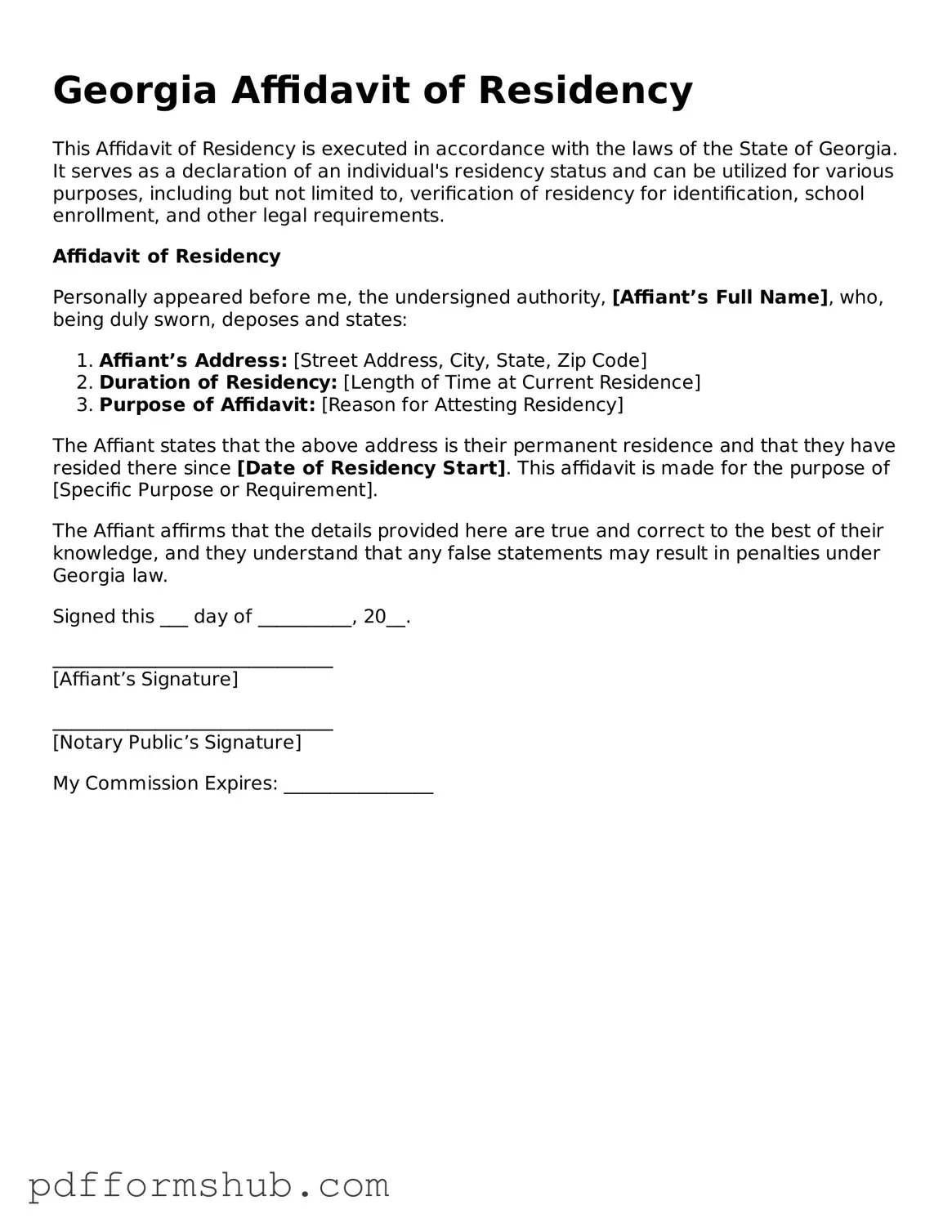Attorney-Verified Affidavit of Residency Form for Georgia State
The Georgia Affidavit of Residency form is a legal document used to verify an individual's residence within the state of Georgia. This affidavit serves as proof of residency for various purposes, such as enrolling in school or obtaining a driver's license. Understanding this form is crucial for ensuring compliance with state requirements.
To fill out the form, please click the button below.
Customize Form

Attorney-Verified Affidavit of Residency Form for Georgia State
Customize Form

Customize Form
or
Free PDF Form
Short deadline? Complete this form now
Complete Affidavit of Residency online without printing hassles.